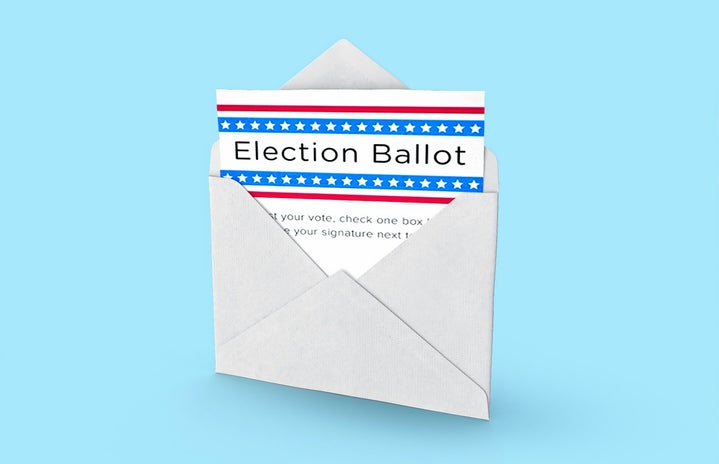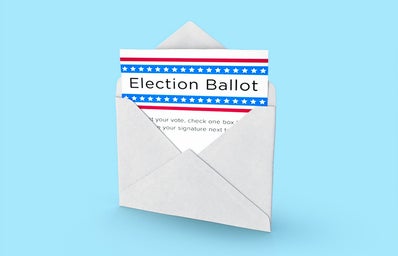On November 5, 76 million Americans re-elected Donald Trump as the 47th President of the United States. For those of us who dreamed of seeing the first woman president in office, Trump’s victory was a devastating loss. A current of hope ran through the air in the days before the election – my friends and I waved “Students for Harris” signs, proudly displayed Harris-themed candles and encouraged our classmates to get out and vote. As the results came in from state after state, the mood grew somber and we slowly deflated. Trump’s victory seems like a step back for the United States; after all, it’s difficult to believe that voters just elected a felon with a history of sexual assault, racist remarks and anti-LGBTQ+ policies to the highest political office in the country. The post-election anxiety is real, especially if you – or your friends and family members – belong to a marginalized community. However, now is not the time to wallow in despair. Tom Nichols, a writer for The Atlantic, exhorted readers to “dust yourself off, square your shoulders, and take a deep breath. Americans who care about democracy have work to do.” We would do well to follow his advice. The road ahead is difficult, but we have to keep going. Here are four tips for surviving another Trump presidency (spoiler alert: we’re going to have put in some work).
1. Donate
I know we’re all broke college students, but if you have the means, don’t hesitate to donate to one of the many organizations advocating for women’s and LGBTQ+ rights throughout the country. Even a small donation can go a long, long way. Organizations such as Lambda Legal and the well-known American Civil Liberties Union are firmly committed to protecting LGBTQ+ rights even as Republican politicians threaten to erase them. Look over this Cosmopolitan article for a more complete list of LGBTQ+ organizations to support post-election. In the area of women’s rights, organizations such as the League of Women Voters and the National Organization for Women (NOW) have worked tirelessly to protect reproductive rights, and they will be continuing their work during Trump’s next term. Furthermore, youth-led organizations like United We Dream advocate for the rights of immigrants, which are particularly important as Trump sets forth his plans to institute harsh restrictions on immigration.
2. Get Involved
If you aren’t in a place to financially support a non-profit organization, try volunteering your time. Many major non-profits have branches in Florida, and they’re always looking for volunteers to get involved with on-the-ground campaigning, phone-banking and social media design. Organizations such as the League of Women Voters of Florida and the ACLU of Florida are perfect places to start – reach out to a member and ask how to help or sign up to volunteer at an event. You could also try virtual volunteering; for example, apply for the fellowship program offered by Voters of Tomorrow, a progressive, youth-led voter engagement organization. Find candidates in your area who support the policies you believe in and volunteer for their campaigns. If you’re not sure where to begin your research, check out the Florida Amendment Guide, which offers an overview of amendments that are on the ballot each election cycle. Run For Something, an organization supporting progressive candidates throughout the country, also offers campaign volunteer opportunities for young people.
3. Talk to Others
Chances are, you have a friend or family member who voted for Trump. While it may be awkward to discuss major political and moral topics with someone who disagrees with you, respectful political discussions are an essential part of the electoral process. Encouraging others to see another point of view or consider new evidence could help sway them towards a more progressive point of view. Be willing to listen to others’ political opinions, even if they may be incorrect; it’s easy to refute misconceptions in a respectful manner. Ask questions, and express your views politely. Your MAGA-supporting uncle won’t be convinced to vote blue in the next election if you approach the topic of a Trump presidency in an argumentative manner. If you’re attempting to persuade someone who refuses to hear other points of view, draw on your personal experiences for support while emphasizing your commonalities with the other individual. However, if the other individual in the conversation ignores your statements or resorts to offensive insults, it’s okay to call them out.
4. Educate Yourself
You may think that you know everything there is to know about the current U.S. political landscape, but unless you’re a devoted political science fanatic, you probably don’t. Take a stance of humility and acknowledge when you’re uneducated about a topic. Then, put in the effort to educate yourself. Keep up to date on political news by following reliable, unbiased resources such as Reuters, NPR and The Associated Press. Use the Ad Fontes Media Bias Chart to ensure that you aren’t consuming misinformation on a daily basis. Always check your sources – if you read something on social media that doesn’t seem quite right, make sure to research before reposting.
It’s easy to wallow in misery while reading about Trump’s nominations for high-ranking political positions or looking at your family members’ conservative Facebook posts. However, despair won’t get anything done. Step out of your comfort zone and openly advocate for others’ rights. Have conversations with people from all political viewpoints. Ensure that your views are grounded in fact. The country may seem irreparably divided, but it’s our responsibility as young people to repair that divide. We owe it to ourselves, to our friends and to future generations of voters.


